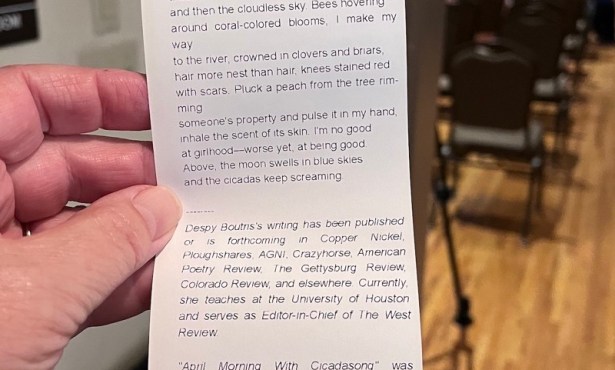‘The Danish Girl’ Delicate, Not Daring
True-Life Transgender Romance Sweet but Slightly Superficial

The Danish Girl tells the story of Lili Elbe (Eddie Redmayne), one of history’s first sex-reassignment patients, and her partner, Gerda Wegener (Alicia Vikander). Directed by The King’s Speech’s Tom Hooper, the film is another tale of private suffering told with delicate dignity, albeit at the expense of more daring storytelling. The acting is superb and the set pieces exquisite, but the film is normative on the whole, corseted by its Best Picture aspirations.
Redmayne, who won an Oscar for last year’s depiction as Stephen Hawking, plays a lovely Lili, rendering her with great grace and fragility. He always maintains sweet poise, upholding Lili’s charm both in her most elegant presentations and in her most distressed times as she undergoes sex reassignment. The trials and humiliations of her experiences with medical professionals are among The Danish Girl’s most viscerally intense scenes. But Vikander, as Gerda, is perhaps even more compelling, showing courage and gravitas as Lili’s steadfast partner. In what may be the movie’s most moving moments, we watch as she patiently endures the challenges posed by her partner’s shifting self-expression with silent tears.
As gender stories go, this one is perhaps more akin to The Picture of Dorian Gray or an 18th-century masquerade fantasy, wherein issues of gender identity are largely aesthetic. We see how inextricable Lili’s inner life is from her outward feminine trappings, yet the film barely touches on the beneath-the-surface feelings informing her performative pursuit. As she becomes more and more painting-like in her femininity, we are left with Gerda as the sole foil through which deeper emotions must be told.
The movie functions like its main character — aesthetically refined but disguising or suppressing trickier emotional territory. For such potentially rich subject matter, the drama could have been deeper. Yet perhaps that was the point. What is remembered here is not the heroism of their struggle but the heroism of their shared happiness, in its delicacy and joy. Maybe in the grand scheme it is a triumph that a love that was once so forbidden can now, in this rendering, feel almost quaint.



